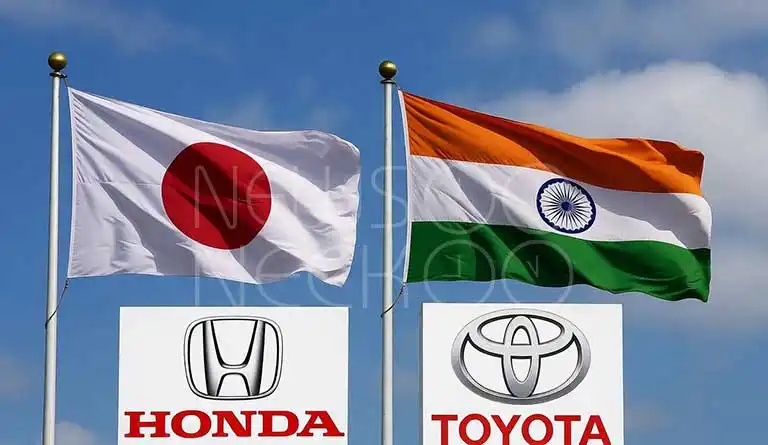Japan’s Auto Giants Bet Billions on India in Strategic Pivot From China
NEW DELHI/TOKYO – In a quiet industrial revolution, Japan’s biggest car companies are making a multi-billion-dollar wager on India, quietly transforming the South Asian nation into a global production powerhouse as they strategically reduce their reliance on China.
Toyota Motor and Honda Motor are leading the charge, announcing massive new investments to build factories and develop new models specifically for the Indian market. The shift marks a fundamental redrawing of global supply chains, with India emerging as the prime beneficiary.
The world’s largest automaker, Toyota, together with its partner Suzuki, has unveiled plans to invest a staggering $11 billion to strengthen its manufacturing and export footprint in India, the world’s third-largest auto market. Not to be outdone, Honda announced last week that it will designate India as a key production and export base for one of its upcoming electric vehicles.
“For the Japanese automakers, India is a good choice as a replacement market for China,” said Julie Boote, an auto analyst at Pelham Smithers Associates in London. “For the time being, they think it’s a much better market because they don’t have to deal with fierce Chinese competitors.”
You Might like it: Indian Economic Transformations Ahead
The Allure of India
The reasons for this pivot are manifold. India’s long-standing advantages a vast pool of low-cost labor and a massive domestic market are now being supercharged by new strategic realities.
In China, Japanese carmakers face a brutal price war, especially in the electric vehicle sector, making it difficult to turn a profit. Compounding the pain, Chinese EV makers like BYD are expanding aggressively overseas, eating into the market share of Japanese rivals in key regions like Southeast Asia.
India, by contrast, remains a relative sanctuary. Its market is all but closed to Chinese EVs, providing a protected environment for Japanese companies to grow. Furthermore, Prime Minister Narendra Modi’s government is offering attractive incentives to manufacturers, and the quality of goods produced in India has seen a notable improvement.
Investment figures tell the story clearly. Japan’s annual direct investment in India’s transport sector skyrocketed more than seven times between 2021 and 2024, reaching 294 billion yen ($2 billion) last year. Over the same period, Japanese investment in China’s transport sector plummeted by 83%, to a mere 46 billion yen.
A New Local Strategy
This isn’t just about building more cars in India; it’s about integrating the country into the core of their global operations. Toyota, for instance, is working intensely with both Japanese and Indian suppliers to reduce costs and ramp up production of hybrid vehicle components, which have seen surging demand in India.
An executive at a major Toyota supplier revealed that the company’s strategy has fundamentally shifted. “It is no longer about global specifications but about local ones,” the executive said, highlighting a new depth of commitment to tailoring products for Indian consumers.
Toyota has ambitious plans for the market, aiming to launch 15 new and refreshed models in India by the end of this decade and significantly deepen its sales network in rural areas. Its goal is to capture 10% of the Indian passenger car market, up from 8% currently.
“The Indian market is extremely important and is set to grow in the future,” Toyota President Koji Sato told reporters at a recent industry show in Japan, acknowledging the intense global focus on the country’s potential.
With Honda leveraging its fully-owned Indian subsidiary for its new EV hub and Suzuki already commanding a dominant 40% share of the Indian car market, the Japanese auto industry’s strategic bet on India is now in full motion, positioning the country as the new cornerstone of Asian auto manufacturing.
Author: Yasir Khan
Date: 06 Nov, 2025
For More Updates, Visit Newsneck













